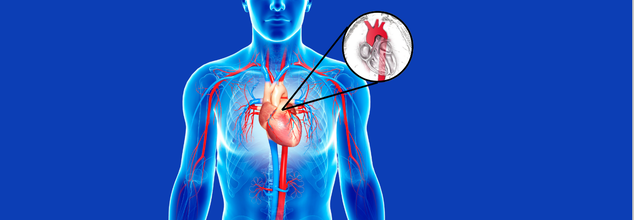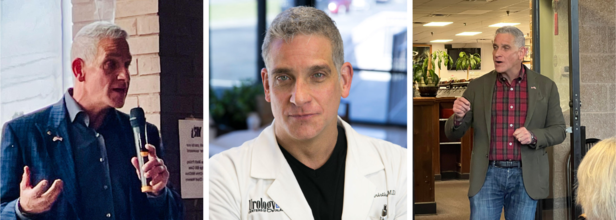
Credit: Canva
Heavy ChatGPT Users Tend To Be Lonelier, Study Suggests
Heavy users of ChatGPT tend to be lonelier, more emotionally dependent on the AI tool, and have fewer offline social relationships, new research suggests.
While only a small fraction of users engage emotionally with ChatGPT, those who do are often among its most frequent users, according to two studies conducted by OpenAI and the MIT Media Lab.
The researchers observed that users who had the most emotionally expressive personal conversations with the chatbot also reported higher levels of loneliness. However, it remains unclear whether the chatbot use leads to loneliness or if lonely individuals are more likely to seek emotional connection through AI tools.
Although the studies are preliminary, the researchers raise important questions about how AI tools like ChatGPT—which OpenAI says is used by over 400 million people each week—are affecting people’s offline lives.
The studies, which are expected to be submitted to peer-reviewed journals, found that participants who “bonded” with ChatGPT—those in the top 10% in terms of time spent using the tool—were more likely than others to experience loneliness and show greater emotional reliance on it.
The findings presented a complex picture of AI’s emotional impact. Voice-based chatbots seemed to reduce feelings of loneliness more effectively than text-based chatbots at first, but this benefit diminished the more users interacted with them.
After four weeks of using the chatbot, female participants were slightly less likely to engage in offline social activities than male participants. Interestingly, those who used ChatGPT’s voice mode and chose a gender different from their own reported significantly higher levels of loneliness and emotional dependence by the end of the study.
In the first study, the researchers examined real-world data from nearly 40 million ChatGPT interactions, then surveyed 4,076 users about their emotional experiences. In the second study, nearly 1,000 participants were recruited to use ChatGPT daily for at least five minutes over four weeks. They were asked to fill out questionnaires measuring their loneliness, levels of social engagement, and emotional attachment to the bot.
The findings reflect earlier research—such as a 2023 MIT Media Lab study—which found that chatbots often mirror the emotional tone of the user’s messages. Happier messages typically resulted in happier responses from the chatbot.
Dr. Andrew Rogoyski of the Surrey Institute for People-Centred Artificial Intelligence said that AI chatbots can be “dangerous” because humans are naturally inclined to treat machines that behave in human-like ways as if they were actually human. “In my opinion, we are doing open-brain surgery on humans, poking around with our basic emotional wiring with no idea of the long-term consequences. We’ve seen some of the downsides of social media – this is potentially much more far-reaching,” he warned.
Dr. Theodore Cosco of the University of Oxford acknowledged that the study raises “valid concerns about heavy chatbot usage,” but also sees potential. “The idea that AI systems can offer meaningful support—particularly for those who may otherwise feel isolated—is worth exploring. However, we must be thoughtful and intentional in how we integrate these tools into everyday life.”
Dr. Doris Dippold from the University of Surrey noted that it’s essential to understand what causes emotional dependence. “Are they caused by the fact that chatting to a bot ties users to a laptop or a phone and therefore removes them from authentic social interaction? Or is it the social interaction, courtesy of ChatGPT or another digital companion, which makes people crave more?”

You May 'Not Have A Nerve' , But Scientists Just Found You Do Have A 'Second Heart' To Pump Blood
When we hear the word "heart," we imagine the body's engine—a tireless, muscular pump that works to circulate blood and bring oxygen to every living cell. But in a shocking discovery, scientists now suggest that we might have been underestimating another silent hero of our cardiovascular system- the aorta. Long considered to be little more than a passive pipe, the aorta is now being recognized as an active, dynamic participant in supporting the heart—so much so that scientists are referring to it as a "second heart."
This revolutionary finding presents a promising new vision of cardiovascular function and may redefine the way we treat heart failure and circulatory health globally.
The aorta, the largest artery in the human body, has long been renowned for its elasticity—stretching to allow the surge of blood from the heart and recoiling to keep pressure constant. Though these qualities were once thought to be purely passive, new studies published in The Journal of The Royal Society Interface show a more active role.
The aorta also does more than merely absorb pressure, according to research. The aorta produces what's referred to as a "wave-pumping effect"—a mechanical function by which the vessel stretches and recoils in harmony with the cardiac cycle. This motion generates energy that helps push blood through the body, essentially serving as a second pumping mechanism.
This phenomenon, only seen before in the initial stage of embryonic development, seems to continue up to adulthood, particularly being important in patients whose heart function is impaired.
How Your Aorta Becomes a "Second Heart"?
The wave-pumping mechanism, scientifically known as impedance pumping, is the interaction between heartbeats and the elasticity of the aorta. As the heart contracts during systole, the left ventricle forces blood into the aorta, stretching it like a spring. Subsequently, during diastole when the heart relaxes, the aorta snaps back, propelling the blood forward using stored mechanical energy.
This back-and-forth stretch-recoil mechanism enhances circulation without demanding another heartbeat. It's nature's clever technique for lessening cardiac burden while preserving blood flow—and might be particularly critical when the heart has been compromised by disease.
Researchers employed magnetic resonance imaging (MRI) to study the motion of the aorta of 159 people, both healthy volunteers and those with heart failure. The findings were dramatic.
Healthy subjects demonstrated much greater aortic displacement, reflecting strong wave-pumping activity. Conversely, individuals with heart failure had lower aortic stretch, implying weaker secondary pumping assistance. This contrast illuminates how some individuals with compromised hearts are able to pump blood efficiently anyway—partly due to the mechanical aid of their aorta.
Can Your Aorta Help Save Your Heart?
Heart failure, which impairs the heart's pumping ability, affects millions worldwide. This discovery paves the way for an entirely new treatment category: increasing the elasticity of the aorta to facilitate blood flow.
Today, certain antihypertensive medications are attempting to decrease arterial stiffness, but their specific effect on aortic wave-pumping is unknown. With this new understanding, therapies in the future may be created to activate or restore the aorta's pumping ability, relieving the failing heart's workload and enhancing patient outcomes.
Researchers are also examining non-drug treatments such as lifestyle changes and exercise, both of which are known to enhance vascular flexibility. Might we one day have individualized exercise regimens or vascular therapies specifically designed to maximize this second heart? The potential is intriguing.
Why the Aorta's Role Was Overlooked?
Interestingly, the wave-pumping function of the aorta was heretofore seen only during the embryonic stages, where it helped still-undeveloped hearts pump blood. Gradually, as the heart developed, researchers presumed that this process became obsolete.
That turns out not to be the case, according to this new study. What turns out to be true is that the aorta can continue to have this function deep into adulthood, particularly kicking in during cardiac duress.
This discovery is a paradigm shift in our conception of the vascular system—not only as a tube network, but as a smart, adaptive circulation partner.
To comprehend the aorta as something greater than an inert pipe—but instead as a second heart—may revolutionize diagnostics and treatment approaches for cardiovascular disease. From how we read MRI scans to how we customize therapies for heart failure patients, this information introduces a new dimension of complexity—and hope.
In the future, keeping your heart healthy might also mean taking better care of your aorta—the silent force that could be saving your life, one beat at a time.

Credit: Canva
Poor Dental Health May Trigger Fibromyalgia and Headaches—Here's How to Protect Your Teeth
You probably know that inadequately brushing can increase your risk of tooth decay, gum diseases and bad breath. But researchers in Australia have discovered that it can do much worse than this. The research, published in the journal Frontiers in Pain Research, discovered a surprising link between poor oral hygiene and body aches, migraines and stomach pain, especially in women.
The researchers concluded that women with worse oral health are significantly more likely to suffer from pain, including frequent headaches and conditions like fibromyalgia. Fibromyalgia is a chronic condition characterized by widespread musculoskeletal pain — including headaches — as well as fatigue, sleep disturbances and cognitive problems. They explained that it was because tiny microbes in the mouth that might be messing with the nervous system.
For this new study, researchers analyzed the data of 186 women—67% of whom had fibromyalgia—and found that those with the worst dental health were 60% more likely to suffer moderate to severe body pain and nearly 50% more likely to report migraine headaches. Thus, they concluded that the more severe their head hurt, the worse their mouth looked.
"This is the first study to investigate oral health, oral microbiota and pain commonly experienced in women with fibromyalgia, with our study showing a clear and significant association between poor oral health and pain," said lead author Dr Joanna Harnett, an associate professor at the University of Sydney School of Pharmacy. “Our findings are particularly important to fibromyalgia which, despite being a common rheumatological condition, is often under-recognized," co-author Sharon Erdrich added.
Here's How You Can Take Care Of Your Dental Health
Taking care of dental health is important. These are a few things you can do to take care of your dental health.
- Brush Before Breakfast: UK dental surgeon Shaadi Manouchehri advises brushing before eating breakfast to remove the bacteria that builds up overnight. This practice shields your teeth from acidic food and drinks that can weaken enamel.
- Choose Healthy Snacks: Opt for raw vegetables, nuts, or fruits that are low in sugar and require chewing, which stimulates saliva production and naturally cleans the teeth.
- Use Xylitol Gum: Chewing gum with xylitol after meals can boost saliva flow and reduce the risk of cavities.
- Wait Before Brushing After Meals: If you prefer to brush after eating, wait at least 30 minutes to allow your enamel to re-mineralize and harden.
Moreover, here are a few things you should avoid:
Avoid Sugary Snacks: Fermentable carbohydrates, such as chips, crackers, and cereal, turn into sugars that fuel the growth of harmful bacteria in the mouth.
- Skip Brushing After Acidic Meals: Acidic foods and drinks can weaken your enamel. Brushing immediately after consumption can wear away the softened enamel, leading to cavities.
- Don’t Skip Hydration: Drink water after meals to help neutralize acids and wash away remaining food particles in your teeth.
Maintaining optimal dental health takes more than just brushing and flossing twice a day. Adding such healthy eating habits, timing your brushing routine, and using xylitol gum after meals, you can protect your teeth from decay and promote stronger enamel.

Brain Christine (Source: Facebook and Urology Centers of Alabama)
Trump's Top Health Nominee Wants ‘Corrective Care’ For Trans People
It is no surprise that whoever President Donald Trump nominates as a top pick for a health position comes with controversies. This time, it is for a key federal health role, which is facing scrutiny for controversial remarks on transgender care and the COVID-19 pandemic. Brain Christine, a 61-year-old urologist from Alabama, publicly advocated for "corrective care" for transgender youth and questioned mainstream narratives around the pandemic.
Who is Brian Christine?
He is President Trump's top pick for assistant secretary for health, a position which was previously held by Dr Rachel Levine, the first openly transgender federal official confirmed by the Senate. Unlike his predecessors, Christine has no experience in the government service. He is however, well-regarded in his medical field, especially for his work in men's sexual health, including treatments for erectile dysfunction.
Christine's nomination marks a trend of Trump selecting individuals with nontraditional background for health leadership roles. If confirmed, he would serve as a deputy to Health and Human Services Secretary Robert F Kennedy Jr.
ALSO READ: 'Why Should Society Pay For Your Health?' RFK Jr. On Those Who Smoke Or Eat Donuts
Controversial Views On Transgender Youth
Christie has preciously also made several public statements which oppose gender-affirming care for transgender minors. While he acknowledged gender dysphoria as a real concern, he also equated it to addiction and believed children should receive "corrective care" such as counseling or pastoral support, instead of medical transitioning.
In one of the interviews from 2023, Christine criticized what he called the "transgender agenda", accusing the political left for using children as "pawns". He also framed transgender rights as part of the broader attack on masculinity, family and religion.
Many major medical organizations in the US, including the American Academy of Pediatrics and the American Medical Association support gender-affirming care as evidence-based and potentially life-saving for transgender youth.
In fact, his views have faced opposition from many LGBTQ+ advocacy groups. Brandon Wolf of the Human Rights Campaign called Christine’s views “dangerous disinformation” and said they pose real harm to children. Critics argue that his stance undermines decades of progress in LGBTQ+ health and rights.
Has Christine Ever Provided Transgender Patient Care?
While he claims that he has never done so, there are past advertisements from his medical practice that suggest otherwise. His website had once promoted treatments for patients who had undergone gender transition. His clinic also placed ads in LGBTQ+ magazines. He has, however, denied these claims, and said he never offered surgical or hormonal care of transgender individuals.
What About COVID-19 Vaccines?
Like RFK Jr., Christine too is riding the bandwagon of his controversial remarks on COVID-19 vaccine. His views on the COVID-19 pandemic have also drawn attention. On his podcast, he once expressed skepticism about the government's pandemic response. He suggested that it was used to influence the 2020 election and benefit large corporation. He also criticized lockdowns for harming small businesses and questioned vaccine mandates. However, he has initially received the vaccine himself.
© 2024 Bennett, Coleman & Company Limited

